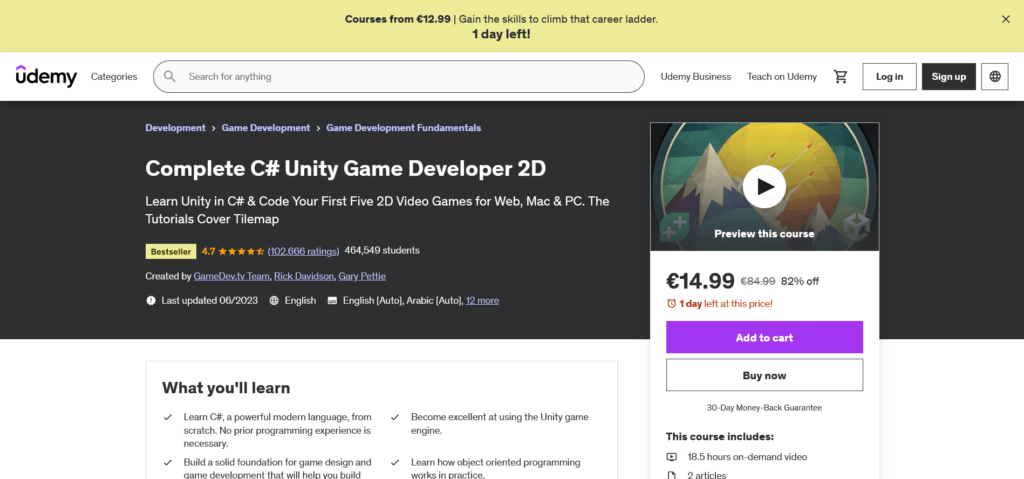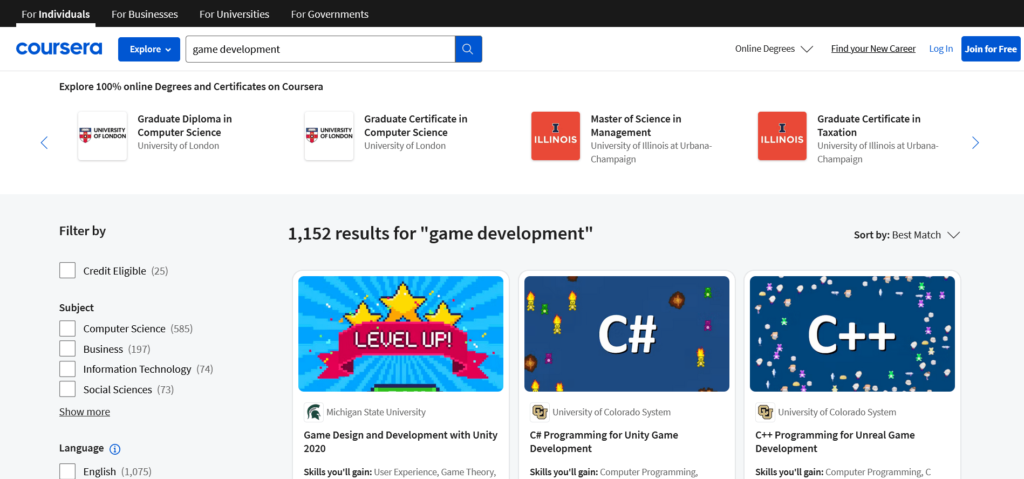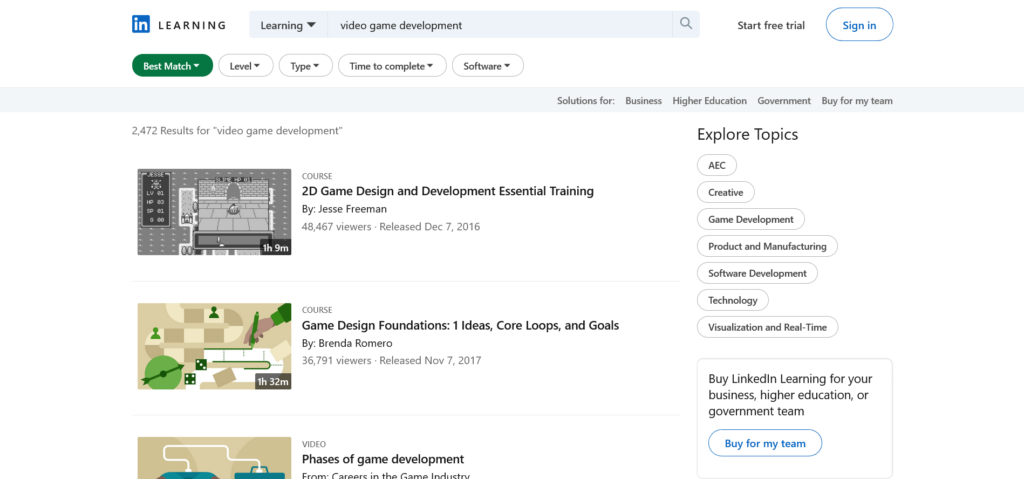Introduction
Are you passionate about gaming and skilled in community-building? If so, embarking on a career path as a video game community manager could be your ticket to blending your love for gaming with a fulfilling profession. In this comprehensive guide, we’ll delve into the intricacies of what it takes to become a video game community manager, exploring the essential skills, responsibilities, and strategies necessary to excel in this dynamic role. Whether you’re an avid gamer looking to turn your passion into a career or a seasoned community manager seeking to transition into the gaming industry, this article is your roadmap to success as a video game community manager. So, let’s dive in and uncover the exciting world of video game community management together.
Understand the Role of a Video Game Community Manager
Before diving into the specifics, it’s essential to grasp the responsibilities and expectations associated with the role of a video game community manager. Community managers act as liaisons between the gaming company and its player base. They are responsible for managing social media channels, forums, and other communication platforms to engage with players, address concerns, and gather feedback. Additionally, they play a crucial role in organizing events, managing online communities, and representing the company’s brand voice.
Develop a Deep Understanding of the Gaming Industry
To excel as a video game community manager, you must immerse yourself in the gaming industry. Stay updated on the latest trends, releases, and developments across various gaming platforms. Familiarize yourself with different gaming genres, communities, and player demographics. Understanding the nuances of gaming culture will enable you to connect more effectively with players and tailor your communication strategies accordingly.
Hone Your Communication Skills
Effective communication lies at the heart of the community manager role. You must be adept at conveying information clearly and engagingly across different platforms and mediums. Whether it’s responding to player inquiries, crafting social media posts, or moderating discussions, strong written and verbal communication skills are paramount. Practice articulating ideas concisely, empathizing with diverse perspectives, and maintaining a professional tone in all interactions.
Build a Strong Online Presence
Aspiring community managers should establish a robust online presence across relevant social media platforms and gaming forums. Actively participate in gaming communities, contribute valuable insights, and demonstrate your passion for gaming. Showcase your communication skills by creating engaging content such as blogs, videos, or podcasts related to gaming topics. Building a solid online presence not only enhances your visibility but also serves as a testament to your dedication and expertise.
Gain Relevant Experience
While formal education can provide a strong foundation, hands-on experience is invaluable in the gaming industry. Look for opportunities to gain practical experience in community management, whether through internships, volunteer work, or freelance projects. Offer to moderate forums, organize gaming events, or assist with social media management for local gaming groups or online communities. Proactively seek out opportunities to demonstrate your skills and build a portfolio of relevant experience.
Acquire Technical Proficiency
In addition to communication skills, proficiency in relevant technical tools and platforms is essential for aspiring community managers. Familiarize yourself with popular social media management tools, community forums, and analytics platforms commonly used in the gaming industry. Stay abreast of emerging technologies and trends that may impact community management practices, such as live streaming platforms, virtual reality, or augmented reality.
Network within the Gaming Community
Networking plays a crucial role in advancing your career as a video game community manager. Attend gaming conventions, industry events, and networking meetups to connect with professionals in the field. Engage in meaningful conversations, exchange contact information, and seek mentorship from seasoned community managers. Join online gaming communities, participate in developer forums, and leverage social media to expand your network and stay connected with industry insiders.
Stay Flexible and Adapt to Change
The gaming industry is dynamic and constantly evolving, presenting both challenges and opportunities for community managers. Embrace change, stay adaptable, and continuously seek opportunities for growth and learning. Keep pace with emerging trends, player preferences, and technological advancements that shape the gaming landscape. Flexibility, creativity, and resilience are key attributes that will enable you to thrive in this ever-changing environment.

Top Online Education Platforms Where You Can Learn How to Become a Video Game Community Manager
In today’s digital age, the world of video gaming is thriving like never before. With millions of players engaging in various online communities, the role of a Video Game Community Manager has become pivotal. These professionals are the driving force behind building and nurturing vibrant gaming communities, ensuring player satisfaction, and facilitating communication between developers and gamers. If you aspire to embark on this exciting career path, harnessing the power of online education platforms can be your gateway to success. In this article, we’ll explore the best online courses that will equip you with the skills and knowledge needed to become a proficient Video Game Community Manager.
Udemy

Udemy offers a plethora of courses tailored for individuals aspiring to enter the gaming industry. Look for courses specifically focusing on community management, social media engagement, and player relations. These courses often cover practical strategies, case studies, and tools relevant to managing gaming communities effectively.
Coursera

Coursera collaborates with leading universities and industry experts to offer specialized courses in various domains. Explore courses related to digital marketing, social media management, and online community building. Additionally, consider enrolling in courses that provide insights into gamer psychology and behavior analysis, which are essential aspects of community management.
LinkedIn Learning

Formerly known as Lynda.com, LinkedIn Learning provides a vast library of courses covering diverse topics related to professional development. Search for courses focusing on community management strategies, communication skills, and conflict resolution techniques. Additionally, explore courses on popular gaming platforms and tools commonly used in community management.
Skillshare

Skillshare offers a wide range of courses, including those tailored for aspiring community managers in the gaming industry. Look for classes that delve into social media marketing, content creation, and community engagement tactics specific to gaming communities. Additionally, consider courses that provide insights into game development processes to better understand the perspectives of developers.
Game Industry Mentorship Programs
While not traditional online education platforms, mentorship programs facilitated by experienced professionals in the gaming industry can provide invaluable guidance and networking opportunities. Seek out mentorship programs specifically geared towards community management roles, where you can learn directly from seasoned professionals and gain hands-on experience.
Top 10 Questions and Answers About How to Become a Video Game Community Manager
In the dynamic world of gaming, the role of a community manager is indispensable. They serve as the bridge between the game developers and the players, fostering engagement, resolving issues, and shaping the overall gaming experience. If you’re passionate about gaming and communication, becoming a video game community manager might be the perfect career path for you. In this article, we’ll delve into the ten most searched questions on Google about how to become a video game community manager and provide you with expert insights and actionable tips to kickstart your journey.
1. What does a video game community manager do?
A video game community manager is responsible for building, nurturing, and managing relationships between a game’s developers and its player base. They engage with players on various platforms, such as forums, social media, and gaming communities, to gather feedback, address concerns, and promote community initiatives. Additionally, they create content, organize events, and act as advocates for both the players and the development team.
2. What skills are required to become a successful video game community manager?
To excel in this role, you’ll need a diverse skill set. Strong communication skills are paramount, as you’ll be interacting with players from diverse backgrounds. Additionally, you should possess excellent problem-solving abilities, empathy, and a deep understanding of gaming communities. Proficiency in social media management, content creation, and analytics is also highly beneficial.
3. What educational background is needed to become a video game community manager?
While there’s no specific degree requirement for this role, a background in communication, marketing, public relations, or game design can be advantageous. However, what matters most is your passion for gaming, coupled with relevant experience and skills.
4. How can I gain experience as a video game community manager?
Start by actively participating in gaming communities, forums, and social media platforms related to your favorite games. Offer assistance, engage in discussions, and showcase your communication skills. You can also volunteer to moderate forums or organize events within gaming communities to gain practical experience.
5. Are there any certifications or courses for aspiring video game community managers?
While there are no specific certifications tailored for video game community management, you can enhance your skills by taking courses in social media management, content creation, and community engagement. Platforms like Coursera, Udemy, and LinkedIn Learning offer relevant courses that can boost your knowledge and credentials.
6. What are some tips for building a strong online presence as a prospective video game community manager?
Consistency is key when building your online presence. Maintain active profiles on social media platforms relevant to the gaming industry, such as Twitter, Discord, and Reddit. Share valuable content, engage with followers, and showcase your passion for gaming. Additionally, consider creating a blog or YouTube channel to demonstrate your expertise and personality.
7. How can I network with professionals in the gaming industry to advance my career as a community manager?
Attend gaming events, conferences, and networking meetups to connect with industry professionals. Join online communities and forums where game developers and community managers interact. Networking not only helps you stay updated on industry trends but also opens up opportunities for career advancement.
8. What are some common challenges faced by video game community managers?
Community managers often encounter challenges such as managing player expectations, handling negative feedback, and balancing community needs with business objectives. It’s essential to develop resilience, empathy, and effective communication strategies to navigate these challenges successfully.
9. How can I showcase my skills and experience when applying for video game community manager positions?
Craft a compelling resume and cover letter that highlight your relevant experience, skills, and accomplishments. Provide specific examples of community initiatives you’ve led, successful engagement campaigns you’ve implemented, and challenges you’ve overcome. Additionally, create a portfolio showcasing your content creation abilities, social media presence, and contributions to gaming communities.
10. What career growth opportunities are available for video game community managers?
As you gain experience and establish yourself in the gaming industry, you can pursue various career paths, such as senior community manager, community director, or even roles in game development or publishing. Continuously expanding your skills, networking, and staying updated on industry trends are essential for long-term career growth.
Top 10 Questions and Answers for Video Game Community Manager Job Interviews
Securing a role as a Video Game Community Manager is a dream for many passionate gamers. But to land the job, you need to ace the interview. In this article, we’ll delve into the top 10 most common questions asked during interviews for this position and provide you with expert answers to help you shine.
1. Tell me about yourself.
Answer: Begin by highlighting your passion for gaming and community building. Discuss relevant experiences, such as managing online forums, organizing gaming events, or creating engaging content. Emphasize your communication skills and ability to foster a positive community atmosphere.
2. What do you think are the key responsibilities of a Video Game Community Manager?
Answer: A Video Game Community Manager is responsible for building and maintaining a thriving online community around a gaming brand. This involves engaging with players, addressing concerns, moderating forums, creating content, and organizing events to foster community growth and loyalty.
3. How do you handle conflict within the gaming community?
Answer: Conflict resolution is crucial in community management. I believe in addressing issues promptly, listening to all parties involved, and finding solutions that prioritize the community’s best interests. Transparency, empathy, and clear communication are key in resolving conflicts effectively.
4. How do you plan to engage and grow our community?
Answer: I would start by analyzing the current community dynamics and identifying areas for improvement. Implementing engaging initiatives such as tournaments, challenges, and community-driven content creation can help stimulate growth. Regular communication and soliciting feedback from the community are also vital for fostering engagement.
5. Can you provide an example of a successful community-building initiative you’ve implemented in the past?
Answer: Discuss a specific project where you successfully grew or revitalized a gaming community. For instance, you might talk about organizing a series of livestream events featuring community members, resulting in increased participation and enthusiasm within the community.
6. How do you stay updated on industry trends and community preferences?
Answer: I stay connected by actively participating in gaming communities, attending industry events, following relevant blogs and forums, and keeping an eye on social media discussions. Continuous learning and staying informed about emerging trends are essential in this fast-paced industry.
7. What strategies do you employ to handle negative feedback or criticism from the community?
Answer: When faced with negative feedback, I believe in addressing it transparently and constructively. Acknowledge the concerns, offer solutions or explanations where appropriate, and demonstrate a willingness to listen and learn from the community’s feedback. Turning negative experiences into opportunities for improvement is key.
8. How do you measure the success of your community management efforts?
Answer: Success metrics may include community growth, engagement levels, sentiment analysis, user-generated content creation, and customer satisfaction scores. Regularly tracking these metrics allows me to assess the effectiveness of my strategies and make data-driven decisions to optimize community management efforts.
9. Can you discuss a time when you had to deal with a difficult community member or situation?
Answer: Share a specific example of a challenging situation you encountered, such as managing a disruptive member or mitigating a community crisis. Explain how you approached the situation, the actions you took to resolve it, and the lessons you learned from the experience.
10. Why do you want to work specifically in the gaming industry?
Answer: Express your genuine passion for gaming and your desire to be part of an industry that you love. Highlight how your skills and experiences align with the unique challenges and opportunities present in the gaming community, and your excitement about contributing to the success of gaming brands.
Two Example Resumes for a Video Game Community Manager With Different Level of Experience
Resume Example 1: Entry-Level Video Game Community Manager
[Your Name]
[Your Address] | [Your City, State, Zip]
[Your Phone Number] | [Your Email Address]
[LinkedIn Profile] | [Personal Website/Blog]
Objective: Enthusiastic and dedicated individual passionate about video games and community engagement, seeking an entry-level position as a Video Game Community Manager. Eager to leverage strong communication skills, social media expertise, and a genuine love for gaming to contribute to the growth and success of a dynamic gaming company.
Education: Bachelor of Arts in Communication Studies
[University Name], [City, State]
[Year of Graduation]
Relevant Coursework:
- Social Media Marketing
- Community Engagement Strategies
- Gaming Culture and Community
Skills:
- Social Media Management
- Community Moderation
- Content Creation
- Customer Support
- Strong Communication Skills
- Problem-Solving Abilities
Experience: Intern, Social Media Marketing Gaming Hub Inc., [City, State]
[Month, Year] – [Month, Year]
- Assisted in managing social media accounts, engaging with followers, and creating content to promote gaming events and updates.
- Monitored online forums and gaming communities, responding to user inquiries and feedback in a timely and professional manner.
- Collaborated with the marketing team to develop and implement social media campaigns to increase brand awareness and community engagement.
Volunteer Experience: Community Moderator Gaming Forum, [City, State]
[Month, Year] – [Month, Year]
- Moderated discussions, enforced community guidelines, and resolved conflicts to maintain a positive and welcoming forum environment.
- Organized community events, contests, and tournaments to encourage active participation and foster a sense of community among members.
Resume Example 2: Experienced Video Game Community Manager
[Your Name]
[Your Address] | [Your City, State, Zip]
[Your Phone Number] | [Your Email Address]
[LinkedIn Profile] | [Personal Website/Blog]
Objective: Experienced and results-driven Video Game Community Manager with a demonstrated track record of building and nurturing vibrant gaming communities. Seeking a senior-level position to lead and innovate community strategies, drive engagement, and contribute to the overall success of a leading gaming company.
Experience: Senior Community Manager Gamer’s Haven, [City, State]
[Month, Year] – Present
- Led a team of community managers and moderators, providing guidance, training, and support to ensure consistent and effective community engagement across multiple platforms.
- Developed and implemented strategic initiatives to increase user retention and satisfaction, resulting in a 25% boost in active community participation.
- Established and maintained relationships with key influencers and content creators to amplify brand visibility and reach within the gaming community.
- Analyzed community feedback and data metrics to identify trends, insights, and opportunities for improvement, informing product development and marketing strategies.
Skills:
- Community Building
- Social Media Strategy
- Team Leadership
- Content Development
- Data Analysis
- Crisis Management
- Public Speaking
Education: Bachelor of Science in Marketing
[University Name], [City, State]
[Year of Graduation]
Certifications:
- Certified Community Manager (CCM)
- Social Media Marketing Certification
Achievements:
- Recognized as “Community Manager of the Year” at the Gaming Excellence Awards [Year].
- Successfully launched and managed several community-driven initiatives resulting in increased player engagement and brand loyalty.
Conclusion
In conclusion, becoming a video game community manager requires a unique blend of skills, passion, and dedication. As a video game community manager, you serve as the bridge between gamers and developers, cultivating vibrant communities and fostering meaningful interactions. By mastering the art of communication, understanding player dynamics, and staying attuned to industry trends, you can thrive in this dynamic role. Remember, being a video game community manager isn’t just a job—it’s a lifestyle that revolves around building, nurturing, and growing virtual worlds where players feel valued and engaged. So, whether you’re embarking on this journey or seeking to refine your skills, embrace the challenges and opportunities that come with being a video game community manager, and watch as you leave an indelible mark on the gaming landscape.














